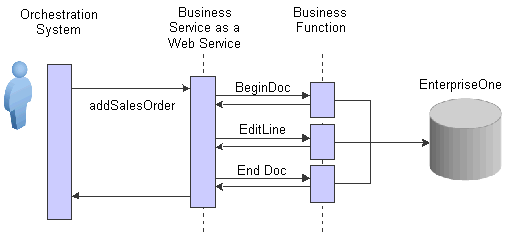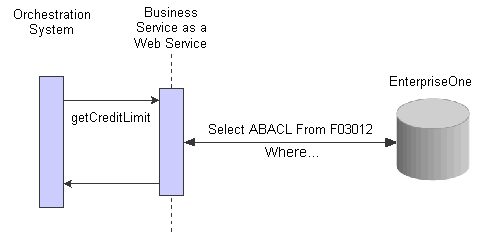JD Edwards EnterpriseOne as a Web Service Provider - Synchronous Request/Reply
JD Edwards EnterpriseOne supports two methods for processing the web service provider synchronous request/reply pattern. The most frequently used model is to expose a web service that accesses the JD Edwards EnterpriseOne data through a set of business function calls.
This pattern uses these systems:
Orchestration system
Business services server
Enterprise server
Database server
The orchestration system calls a JD Edwards EnterpriseOne web service. The web service calls a business service. The business service calls a business function. The business function performs the task that updates the JD Edwards EnterpriseOne database.
This diagram shows this model:

The other method uses JDBj to perform direct data access to the JD Edwards EnterpriseOne database.
This pattern uses these systems:
Orchestration system
Business services server
Database server
The orchestration system calls a JD Edwards EnterpriseOne web service. The web service calls a business service. The business service makes a database operation call that updates the JD Edwards EnterpriseOne database.
This diagram illustrates this model:
